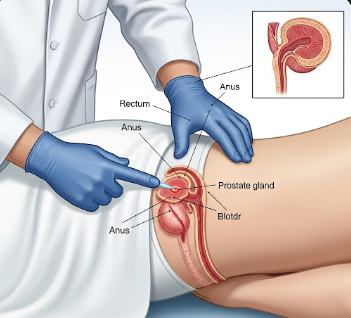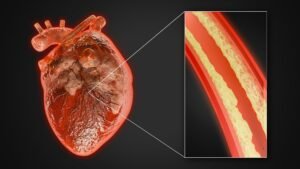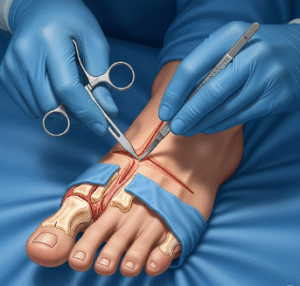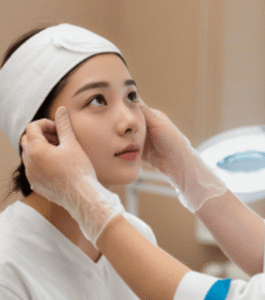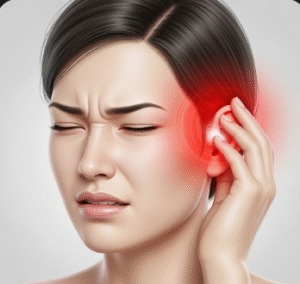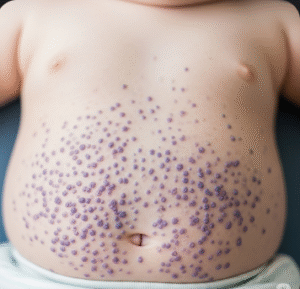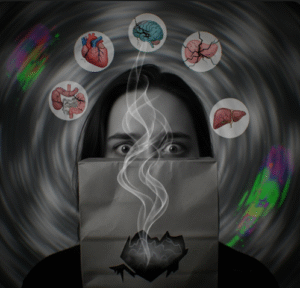What it is
A rectal examination (digital rectal exam – DRE) is a simple medical test where a doctor or healthcare professional gently inserts a lubricated, gloved finger into the rectum to check for abnormalities. It helps detect problems in the lower digestive tract, prostate (in men), reproductive organs (in women), and rectal walls.
➡ Key facts:
- ✔ Quick, usually lasting only a few minutes
- ✔ May feel uncomfortable, but not usually painful
- ✔ Commonly performed as part of routine physical exams, cancer screenings, or to diagnose rectal/anal conditions
💡 In Korea, rectal examinations are often performed as part of comprehensive health check-ups, prostate screening programs, and gastrointestinal evaluations. They are widely available in primary care clinics, gastroenterology centers, and hospitals.
Why it’s done
Doctors recommend a rectal exam for several purposes:
➤ Screening and early detection
- Prostate cancer screening in men
- Colorectal cancer checks when combined with stool tests or colonoscopy
➤ Diagnostic purposes
- Detecting hemorrhoids, anal fissures, rectal tumors, or infections
- Checking for rectal bleeding causes
- Assessing prostate gland size, tenderness, or irregularities in men
- Evaluating pelvic organs in women
➤ Monitoring and follow-up
- Tracking changes in chronic bowel conditions
- Reassessing prostate enlargement (BPH)
Alternatives
While a rectal exam is quick and useful, other tests may provide more detailed results:
✔ Colonoscopy / Sigmoidoscopy → Direct visualization of the colon and rectum
✔ Fecal occult blood test (FOBT) → Detects hidden blood in stool
✔ PSA (Prostate-Specific Antigen) test → Blood test for prostate cancer risk
✔ Pelvic ultrasound or MRI → For deeper imaging of reproductive or pelvic organs
✔ Stool DNA test (FIT-DNA) → Checks for genetic changes linked to colon cancer
⚠ However, a rectal examination is often the first step before moving on to advanced tests.
Preparation
Preparation is usually minimal, but a few things help:
🔹 Before the exam:
- No strict fasting required
- Patient may be asked to empty the bladder and bowels for comfort
- Inform doctor about rectal pain, bleeding, or surgeries
🔹 Mental and physical preparation:
- Understand that the test is brief and safe
- Relaxation techniques (deep breathing) help reduce discomfort
- Privacy and dignity are prioritized in Korean hospitals and clinics
How it’s done
A rectal exam is performed in a clinic or hospital setting.
➡ Step-by-step process:
- Positioning
- Men usually lie on their side with knees bent toward the chest (left lateral position)
- Women may be examined during a pelvic exam in the lithotomy position (lying on back with knees bent)
- Gloving and lubrication
- Doctor wears gloves and applies lubricant to minimize discomfort
- Insertion
- A finger is gently inserted into the rectum
- Patient may feel pressure or mild discomfort
- Examination
- Doctor checks for abnormal growths, tenderness, internal hemorrhoids, anal tone, or prostate size (in men)
- For women, the exam can complement a gynecological assessment
- Duration
- Entire exam usually takes less than 2–3 minutes
- Post-exam
- Patient can return to normal activities immediately
- Mild spotting (rare) may occur if hemorrhoids are present
💡 Tip: In Korea, examinations are performed with strict confidentiality, professionalism, and respect for patient comfort.
Recovery / Expected Outcomes
Recovery is immediate, as it is a non-invasive test.
🔹 Expected outcomes:
- Normal findings (healthy rectum/prostate/anal canal)
- Detection of issues like enlarged prostate, rectal tumors, fissures, hemorrhoids
- Guidance on whether further tests (colonoscopy, PSA, biopsy) are needed
🔹 Emotional impact:
- Some patients may feel embarrassment, but Korean doctors are trained to conduct the procedure discreetly and efficiently
- Results are typically shared immediately after the exam
Complications / Considerations
A rectal exam is generally safe with minimal risks.
⚠ Possible side effects:
- Mild discomfort during the exam
- Small amount of rectal bleeding (rare, usually if hemorrhoids are irritated)
- Psychological discomfort or embarrassment
⚠ Limitations:
- Not as detailed as colonoscopy or imaging
- Cannot detect all abnormalities deeper in the colon
➡ Important consideration in Korea:
- Cultural sensitivity and patient dignity are emphasized
- Exams are often part of a comprehensive health check-up package, especially for men over 50
Treatment Options in Korea (When abnormalities are found)
If abnormalities are detected, further evaluation and treatment options in Korea may include:
🔹 Diagnosis
- Colonoscopy for deeper inspection
- PSA blood test for prostate concerns
- Biopsy if suspicious mass is detected
🔹 Medical treatments
- Medications for prostate enlargement (BPH)
- Topical or oral treatments for hemorrhoids and fissures
- Antibiotics for rectal infections
🔹 Surgical or advanced therapies
- Hemorrhoidectomy (surgical removal of severe hemorrhoids)
- Prostate surgery if enlargement causes obstruction
- Cancer surgeries or radiotherapy if tumors are detected
🔹 Rehabilitation and support
- Pelvic floor exercises for anal tone weakness
- Dietary and lifestyle counseling for bowel health
- Psychological support to overcome anxiety about rectal conditions
Top Hospitals or Clinics in Korea for Rectal Examination
- Seoul National University Hospital (SNUH) – Gastroenterology & urology departments
- Asan Medical Center, Seoul – Comprehensive colorectal and prostate screening programs
- Samsung Medical Center – Advanced diagnostics with integration of imaging and labs
- National Cancer Center, Goyang – Specialized cancer screening (colorectal, prostate)
Conclusion
A rectal examination in Korea is a quick, safe, and valuable diagnostic test that helps detect prostate problems, colorectal issues, and other rectal abnormalities.
Patients benefit from:
✔ Early detection of cancers and rectal diseases
✔ High medical standards with privacy and respect
✔ Integration with advanced diagnostics like colonoscopy, PSA, or MRI
✔ Accessibility across top hospitals and clinics nationwide
With Korea’s focus on preventive medicine and cancer screening programs, rectal exams remain a crucial step in maintaining digestive and urological health.

